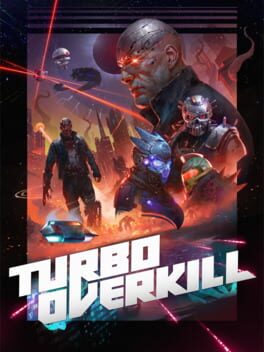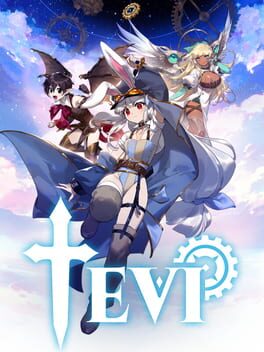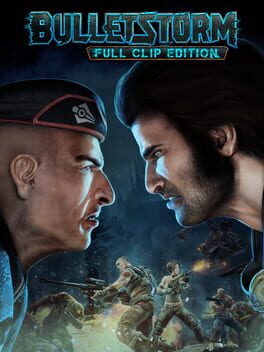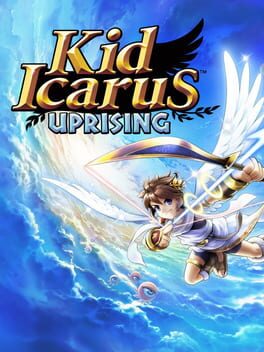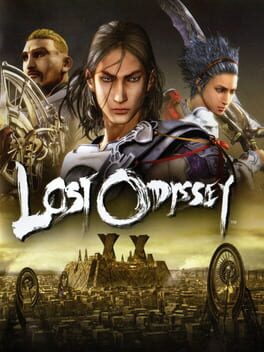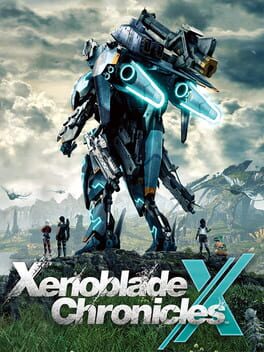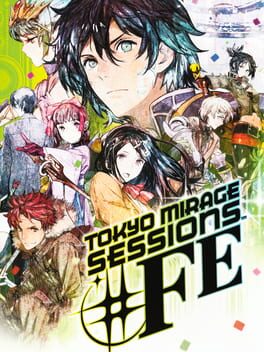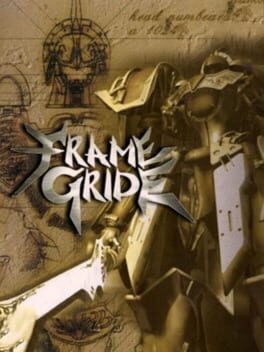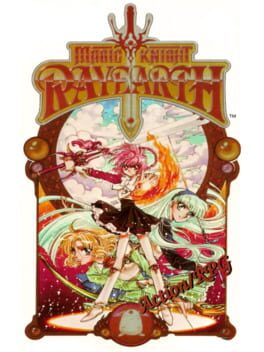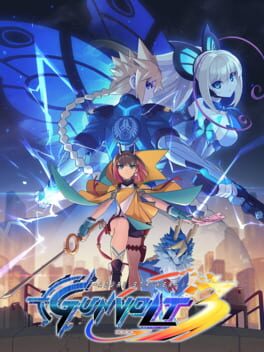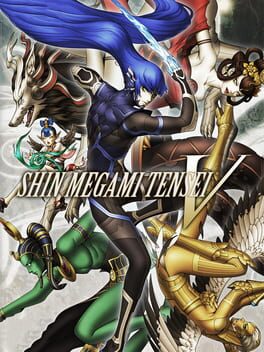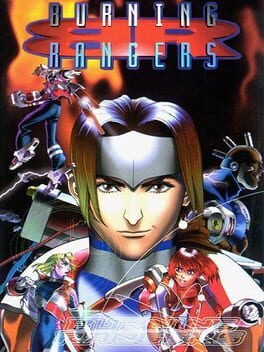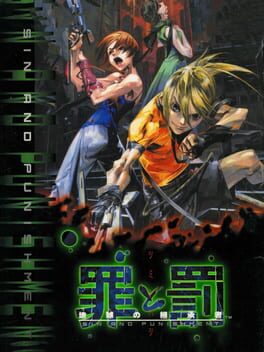KhaosMuffins
2022
2023
The story holds this game back, both in general and with the metroidvania aspects that Rabi Ribi did better. They tried and almost came close to having something good narratively, but came up short as every arc or plot point just felt... incomplete. Which is a shame because Tevi has some pretty interesting and charming characters with some damn good designs.
But the combat and boss battles... they make it all worth it. The adrenaline rush from some of the best fights in action games really gets you feeling some type of way, and amount of skill customization to change up your approach to battles really pushes it over the edge. And the music rocks.
But the combat and boss battles... they make it all worth it. The adrenaline rush from some of the best fights in action games really gets you feeling some type of way, and amount of skill customization to change up your approach to battles really pushes it over the edge. And the music rocks.
Scoring system would've felt much cooler if it accounted for weapon combos while also letting you carry all of your weapons at once (which you do unlock after beating the game, but... why not just have that available from the start). Gunplay just started feeling stale and lost all tension after a point since the enemy types aren't all that engaging, and there are only so many ways you can shoot an enemy into an environmental hazard.
Someone wrote a Steam review that said, "It pisses me off so bad how funny these writers think they are." That's incredibly spot on with the game's dialogue.
Someone wrote a Steam review that said, "It pisses me off so bad how funny these writers think they are." That's incredibly spot on with the game's dialogue.
2012
2022
Probably the most disappointed I've felt in not enjoying a game that seems to be so beloved by others. The vast majority of the game feels like a prologue. Each character's scenario gives you a general idea of their personality, motivations, etc, but the short length of them didn't give me enough material to really come to care about any of the main cast as they barely felt fleshed out. Narratively, the majority of stories didn't pull any interesting takes, twists, or thought-provoking moments to get me invested in what was going on. Each story clearly took from other media genres such as Sci-Fi or Westerns, but they ultimately felt pretty... basic. Like watching a short-film where you already know what all is gonna happen 10 minutes in because it's just following typical genre tropes. That said, gameplay-wise I did appreciate how experimental Live A Live was in having each character scenario play out in mechanically different ways, with the Distant Future and Japan scenarios being highlights. Experimenting with ways to tell a JRPG story outside of typical JRPG gameplay conventions is pretty welcome, and that makes it stand out even among modern games.
The grid-based battle system is neat, but also suffers from that "20 hour prologue" feeling with the game constantly throwing mind-numbingly easy encounters at you. Even some boss battles could be cleared by just parking in one spot and alternating your Healing Skill and Damage Skill, or just damage-racing the boss if your character couldn't naturally heal because that's how the boss encounter was designed. Maybe you'll need to use 1 of the 20 healing items the game threw at you. It's such a waste of an interesting system, and while the combat does eventually open up and show its teeth with some difficult encounters, this happens when you only have around 3 hours of playtime left.
The game has cool and unique ideas, but doesn't do anything cool with them.
The grid-based battle system is neat, but also suffers from that "20 hour prologue" feeling with the game constantly throwing mind-numbingly easy encounters at you. Even some boss battles could be cleared by just parking in one spot and alternating your Healing Skill and Damage Skill, or just damage-racing the boss if your character couldn't naturally heal because that's how the boss encounter was designed. Maybe you'll need to use 1 of the 20 healing items the game threw at you. It's such a waste of an interesting system, and while the combat does eventually open up and show its teeth with some difficult encounters, this happens when you only have around 3 hours of playtime left.
The game has cool and unique ideas, but doesn't do anything cool with them.
2019
2007
The main story is just ok. The gameplay is a very "standard" JRPG in all the bad ways. But good golly gosh the short stories in this game are some of the best writing I've ever been served in a video game, as well as having one of the goofiest (positive) motherfuckers to ever exist alongside a delightful main cast.
Lost Odyssey focuses on an immortal named Kaim, and throughout the game you come across many short stories known as "Dreams" that recount events that occured in Kaim's past. A lot of the game's themes, worldbuilding, and Kaim's character development as he tackles the melancholy and unique experiences that come with immortality are explored through these tales. There are plenty of sad stories, and they can hit the heartstrings pretty hard, but there also exist stories that expand upon the lore of the world by introducing cultures with peculiar traditions, villages that have experienced catastrophes and how Kaim himself has seen them recover hundreds of years later, a shoemaker who is really good at his job and his encounters with Kaim over his lifetime, and more. It's a wonderful story book collection accompanied by music and sounds that really immerse you into the experience, and was by far my favorite part of the game that I feel on its own makes Lost Odyssey worth playing. The main story isn't bad and has its climactic moments, with plenty of silly moments as well that got a lot of laughs outta me. However, I personally could not get invested into it while the Dreams just did a much better job of exploring the game's themes and developing the world.
The gameplay is reminiscent of early Final Fantasy (a number of key Square employees worked on this game), which I personally found hard to go back to since games have just gotten better with turn-based combat and exploration over the years. The fairly linear dungeons have their puzzles, but nothing that can't be solved at a quick glance. The early game is actually pretty difficult since the bosses can hit crazy hard and can just decide to kill a party member without you having the turn speed to do anything about it. Once you get past that hump, with the expection of a few bosses with their own (cool) gimmicks, there isn't much in the way of strategy besides "Attackers attack, Healer heals every turn. Buff against a boss. Ailments have abysmal hit rates and aren't worth going for." The Skill Learning and Ring systems don't really add much to the aspect of party composition/team building, unfortunately. Battles are also slooooooow, often times you'll have to sit and wait a whole minute to watch a turn play out after inputting your commands. It's not the worst battle system in the genre by any means, but if you hate turn-based battle systems or just find it hard to go back to more basic systems after playing ones that are better designed, you may find yourself growing agitated at the random encounters.
All that said, I highly recommend Lost Odyssey. I owned an Xbox 360 as a kid, but always overlooked this game because I thought the aesthetic and combat seemed bland in comparison to other JRPGs such as Tales of Vesperia on the same system. While I do kinda agree with those specific critiques after having actually played it, I am still very happy to have actually experienced Lost Odyssey's writing. The music bangs, too.
Lost Odyssey focuses on an immortal named Kaim, and throughout the game you come across many short stories known as "Dreams" that recount events that occured in Kaim's past. A lot of the game's themes, worldbuilding, and Kaim's character development as he tackles the melancholy and unique experiences that come with immortality are explored through these tales. There are plenty of sad stories, and they can hit the heartstrings pretty hard, but there also exist stories that expand upon the lore of the world by introducing cultures with peculiar traditions, villages that have experienced catastrophes and how Kaim himself has seen them recover hundreds of years later, a shoemaker who is really good at his job and his encounters with Kaim over his lifetime, and more. It's a wonderful story book collection accompanied by music and sounds that really immerse you into the experience, and was by far my favorite part of the game that I feel on its own makes Lost Odyssey worth playing. The main story isn't bad and has its climactic moments, with plenty of silly moments as well that got a lot of laughs outta me. However, I personally could not get invested into it while the Dreams just did a much better job of exploring the game's themes and developing the world.
The gameplay is reminiscent of early Final Fantasy (a number of key Square employees worked on this game), which I personally found hard to go back to since games have just gotten better with turn-based combat and exploration over the years. The fairly linear dungeons have their puzzles, but nothing that can't be solved at a quick glance. The early game is actually pretty difficult since the bosses can hit crazy hard and can just decide to kill a party member without you having the turn speed to do anything about it. Once you get past that hump, with the expection of a few bosses with their own (cool) gimmicks, there isn't much in the way of strategy besides "Attackers attack, Healer heals every turn. Buff against a boss. Ailments have abysmal hit rates and aren't worth going for." The Skill Learning and Ring systems don't really add much to the aspect of party composition/team building, unfortunately. Battles are also slooooooow, often times you'll have to sit and wait a whole minute to watch a turn play out after inputting your commands. It's not the worst battle system in the genre by any means, but if you hate turn-based battle systems or just find it hard to go back to more basic systems after playing ones that are better designed, you may find yourself growing agitated at the random encounters.
All that said, I highly recommend Lost Odyssey. I owned an Xbox 360 as a kid, but always overlooked this game because I thought the aesthetic and combat seemed bland in comparison to other JRPGs such as Tales of Vesperia on the same system. While I do kinda agree with those specific critiques after having actually played it, I am still very happy to have actually experienced Lost Odyssey's writing. The music bangs, too.
I am being completely serious when I say that this may be one of the best open-world games out there. The main story is pretty mediocre especially when compared to other Xenoblade games, and only a small handful of characters really stand out, but this game's exploration and combat are the best in the series. Some of this game's sidequest have stuck with me for years.
1999
Cool concept for an arena battler: mecha knights who can cast magic and summon helpers to fight alongside them. Very much held back by how clunky the controls feel and how the single-player campaign is so short since we no longer have the blessing of laggy Dreamcast netplay on dial-up. I'd be absolutely down if FromSoft tried this concept again, though.
Wonderfully 90's in the good way. Very much plays like a weaker Zelda so the gameplay ain't much to write home about, but this game has a ton of charm. Really enjoyed reading each character's (voiced-over) diary entries over the course of the game, and each girl having their own separate dialogue for interacting with simple objects such as pots, kitchens, books, etc. added a nice touch that made the party more enjoyable. Very cute, cozy, and goofy game with some great music.
Whoever did the flavor text lines for Umi needed a cold shower, though.
Whoever did the flavor text lines for Umi needed a cold shower, though.
The Gunvolt series is unfortunate in that the game throws so many hand-holding mechanics at you that you /have/ to intentionally disable/ignore some mechanics or aim for high ranks to get any real challenge out of them. But man, learning the bosses without Prevasion or Image-Pulses - especially on hard mode - has been some of the most fun I've had with the action-platformer genre.
2021
1998
It's criminal how this game has such a dope soundtrack that's so underutilized. There are no stage themes to bring some excitement to the extremely dull, clunky gameplay, the few times that music does pop up in a stage, it only lasts for a few seconds, and the dope boss themes are attached to bosses that easily go down in a minute. The music was too fire so the rangers had to put it out.
2000
